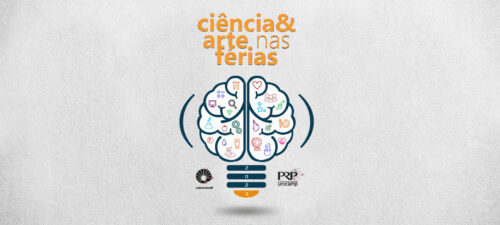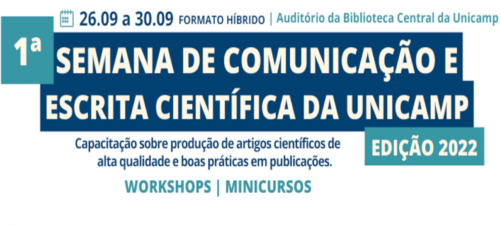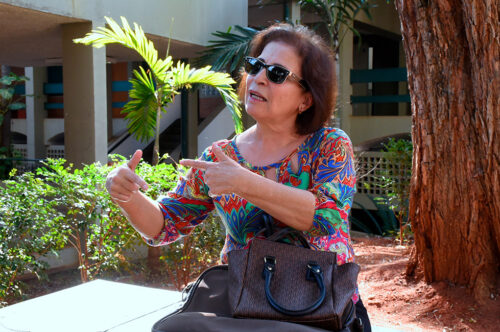Basic and Advanced Course in Scientific Writing (2nd Edition Campinas)
October 14, 15 and 16, 2019
“Logic and Art in Scientific Writing”
COMPLETE COURSE
(2nd Edition: Campinas)
Date: October 14, 15 and 16, 2019
Location:
Basic Part (14 and 15/10): Unicamp Convention Center
Advanced Part (15 and 16/10): to be confirmed
Target audience: professors, career researchers, postgraduate students and undergraduate students at Unicamp
Subscriptions here:
Basic Part: Registration closed
Advanced Part: Registration closed
Lecturer: Prof. doctor Gilson Luiz Volpato
Biologist Graduated from UNESP in 1978. Master and Doctor, with post-doctorate abroad (Israel). Retired Associate Professor at the Department of Physiology, Institute of Biosciences of Botucatu, UNESP. He studied animal physiology and behavior, gaining international recognition. He had scientific interaction with researchers from Israel, England, Canada and the United States. Parallel to these researches, he dedicated himself to teaching Scientific Writing and the process of doing science. His first course was in 1986 at the undergraduate level and in 1988 at the graduate level. He taught more than 1.000 courses in Brazil and abroad. On this subject, he has published 12 books and makes over 200 videos and other file formats available on the internet. On his youtube channel, he has already surpassed 10 thousand followers, receiving around 950 thousand views. In 2017 he co-founded IGVEC, Instituto GilsonVolpato de Educação Científica (www.igvec.com), which aims to spread the scientific mindset throughout the entire educational system, from preschool to university, in anticipation of consequences for the entire population.
Syllabus: Bases and application of the Logical Method for Scientific Writing. This Method rejects “kabbalistic” rules and conceives scientific writing as an artistic act based on the logic of science. Each element of the text is born from the logical and philosophical foundations of science, seasoned with communicational elements. The method includes a rethinking of science applied to the construction of the scientific text, based on the practice of science and communicational requirements.
Part 1: Basic Content (14/10 and morning of 15/10)
1. What science and how does it work?
2. Level of scientific journals
3. Methodological Bases for Scientific Writing
4. Organization of the story to be told
5. The text as a molecule
6. Writing Objectives
7. Writing Conclusions
8. Oral presentation of the story to be told
9. Writing sequence
10. Writing of parts of the article
11. Inclusion of quotes
12. Scientific style: strategies and tactics in writing
Part 2: Advanced Content (afternoon of 15/10 and 16/10)
At this stage, the student will bring a complete manuscript of a scientific work (not a project, but an “article”) of their own authorship, which will be restructured during the course. The objective is for the student to be able to fully understand the “Logical Method for Scientific Writing”, which will open up opportunities to improve their future articles at every moment. In each step to be treated, the student will be directed to the task to be performed; then it will work on its own text, modifying it. At the end of each stage, students will be able to ask questions to clarify doubts. This dynamic (theory – practice – doubts) will be carried out for each part in which the scientific article was fragmented. At the end, the student will have his manuscript partially restructured, remaining to complete what he was unable to complete in the time available in the course; but it must have already conquered directions for this continuation.
The following topics will be seen: Title, Abstract, Introduction, Methods, Results, Discussion, Citations, Writing Style.
It is essential for the performance that the student has a good theoretical preparation on the Logical Method (prior participation in the course on 14/15 and 10/XNUMX or in a previous edition taught at Unicamp).
The course addresses empirical science, requiring a manuscript with “Results”, whether quantitative or qualitative. The focus is on publications in journals at an international level (ie, those that publish articles from several countries, are cited by authors from several countries and in which internationally recognized scientists also publish their works).
RECOMMENDED LITERATURE FOR USE DURING THE COURSE:
Volpato GL. 2007. Theoretical Bases for Scientific Writing. Academic Culture: São Paulo; Scripta: Vineyard.
Volpato GL. 2015. Practical Guide to Scientific Writing. Best Writing Publisher: Botucatu, SP.
Volpato GL. 2017. Logical Method for Scientific Writing. Best Writing: Botucatu.
Course Objectives
– Apply concepts of the Logical Method in the restructuring of unpublished manuscripts
– Detect and correct errors in the structure of the original manuscript
THIS WORKSHOP IS FOR PARTICIPANTS:
– Correct your own text, under clarification from the teacher and according to international scientific style
– Learn from problems present in articles by other authors, seeing the generality in scientific writing
– Train the application of the Logical Method for Scientific Writing
PARTICIPANT REQUIREMENTS:
1 – Have participated in the previous theoretical course taught by prof. Volpato (past editions held at Unicamp or participation in the first part of the course)
2 – Bring the manuscript on a computer where you can make corrections (make sure you have the co-authors' authorization to change the text)
3 – Be aware of the profile of the journal in which you want to publish
4 – Clearly know the structure of your research and have already given an oral presentation on it.
IMPORTANT!!
*if you want to do the basic part and meet the requirements for the advanced part, register in both links above
*only enroll in the advanced part if you meet the above prerequisites and if you are available for the two days of the course
*if you have already taken the basic course of Prof. Volpato at Unicamp, you can register only in the advanced part
*if you do not meet the prerequisites for the advanced course, just register for the basic part
*the advanced part will be limited to 40 participants (there will be no exceptions)
***
Questions or information: workshops.escrita@reitoria.unicamp.br





